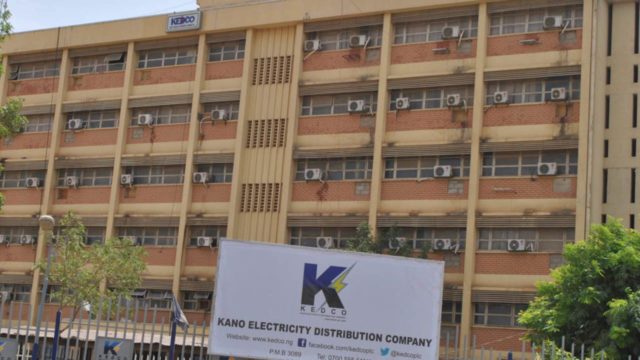
In a bid to reduce power outages in its franchise areas, the Kano Electricity Distribution Company has partnered with different renewable companies to build solar mini-grids of 60 megawatts in 41 locations across Kano, Katsina and Jigawa States.
In a statement, KEDCO announced the allocation of 41 prioritised sites to 31 renewable and off-grid companies in Nigeria to accelerate improvement in energy supply to its customers.
Tagged KEDCO Utility 2.0 Project, the distribution company said the initiative sought to enhance energy security within the KEDCO network, by unlocking renewable energy potential in the area and aligning with the Federal Government’s energy transition plan.
“KEDCO has advanced in engaging with relevant stakeholders, especially the governments of the tri-state of Kano, Katsina, and Jigawa, for input and support toward the success of these projects,” KEDCO spokesman, Bala Sani, explained.
According to Sani, 41 sites were selected across the three states for the development of interconnected mini-grids and embedded generation projects to augment grid supply and improve reliability in the network.
“To reduce losses, all projects include network infrastructure upgrades similar to the $2m Zawaciki Solar Power Plant developed by KEDCO’s core investor, Future Energies Africa, as a pilot for KEDCO Utility 2.0,” he disclosed.
He disclosed that sites for the mini solar grid included Tokarawa Industrial Area, Amana and Kwankwasiyya Cities in Kano, Charanchi, Malumfashi, and Barhim Estate in Katsina, Kafin Hausa and Gumel towns, both in Jigawa State and others.
He added that some of the renewable companies, that had indicated interest in working with KEDCO on phase 1 of the project were Axxela, PowerGen, DayStar, Elektron, Bagaja, ProServe, Husk, Pam Africa, Westa and others.
“After a comprehensive procurement process, the pre-qualified developers were grouped into two categories: Tier 1 (one-megawatt sites or greater); Tier 2 (lower than 1MW), and selected proposed sites were duly allocated.
“Pre-qualified developers are required to register, pay fees and security deposits, complete an initial site assessment, and sign agreements within this month to move to the site within Q3 2024. An estimated 60MW is being apportioned to developers that will handle the construction of solar power plants, partner with KEDCO on the upgrade of distribution infrastructure in the communities, and provide metering infrastructure.
“Tokarawa, Challawa, and some of the proposed sites are designed to be embedded generation projects modelled as a bilateral contracting agreement between KEDCO and the developers,” the statement read further.
Utility 2.0 is the programme that KEDCO’s core investor, Future Energies Africa, is championing to make the company the first green utility in Africa.
According to its spokesman, KEDCO is approaching off-grid as an opportunity and not a threat to its business, by partnering with developers.
KEDCO’s Chief Strategy Officer, Hussaini Sadiq, was quoted as saying, “I believe KEDCO has great potential for investment and partnerships, particularly aligning with our host state governments in reviving agro-industrial and commercial hubs, towards the re-industrialisation and socio-economic empowerment of our communities.
“The proposed sites under the KEDCO Utility 2.0 have underserved customers with a high unsuppressed load, which makes it a great opportunity for all stakeholders.”
Also, KEDCO’s Chairman, Adamu Gumel, stated, “We are keen to explore all available solutions towards resolving energy deficiency in our network, thus, Utility 2.0 will continue to grow and evolve. We are already working on Phase 2 as 60MW is just a small portion of the energy gap we need to cover. We hope to continue to work with developers that excel in this first phase into the future.”
NewsNow reports that 41 mini-grids are coming amid repeated national grid collapses and the inability of the country to ramp up power generation, which has been hovering around 4,500MW lately.
The Electricity Act 2023 allows the construction of mini-grids to generate power through renewable sources.
